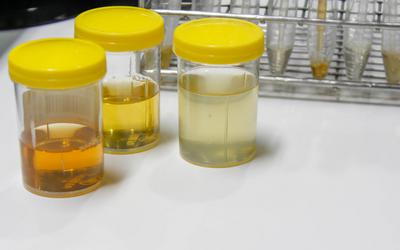Can Employment Drug Testing Reduce Workers' Comp Insurance?
With employment drug testing, creating a safe workplace with fewer accidents and lower workers' compensation claims is an achievable goal. This blog article provides useful information for employers and HR managers, helping them make informed decisions about how drug testing can influence insurance premiums and workplace dynamics.

Specifics of Employment Drug Testing
Employment drug testing is designed to help ensure a drug-free workplace through various employment drug tests, including pre-employment, random, post-accident, and reasonable suspicion testing. The main goal is to identify and mitigate the risks associated with drug abuse, which can lead to safety hazards and increased workers' comp claims. By understanding how workplace injuries and substance abuse are connected, employers can customize their drug testing programs to address specific needs and risks within their organization.
The Impact of Drug Testing on Workers' Compensation Insurance Costs
How does employment drug testing affect workers' comp insurance rates?
Employment drug testing can significantly impact workers' compensation insurance costs. By reducing the number and severity of claims, a drug-free workplace leads to fewer accidents, resulting in lower insurance premiums and rates.
How can employment drug testing reduce workplace injuries?
Employment drug testing reduces workplace injuries by identifying employees who may be using substances that impair their ability to perform safely on the job. By implementing regular and random drug testing, employers can deter drug use and remove those who pose a risk from safety-sensitive positions. This proactive approach helps prevent accidents caused by impaired judgment, slower reaction times, and decreased coordination, thereby creating a safer work environment and reducing the likelihood of injuries.
Employment Drug Testing Best Practices
Employers should follow best practices to maximize the benefits of employment drug testing. This includes creating a clear drug testing policy, communicating it to all employees, and using SAMHSA-certified labs. Keep in mind that company policies should follow state and federal drug testing regulations.
Compliance and Regulation Information
Navigating employment drug testing and workers' compensation claims requires understanding compliance and regulations. Employers must comply with legal requirements in their jurisdiction, including confidentiality, employee protections, and rights. Staying up-to-date on these rules helps organizations run drug testing programs that are effective and compliant, creating a fair and safe workplace for everyone.
Choose Health Street for a Safer Workplace with Employment Drug Testing
Employment drug testing plays a vital role in lowering workers' compensation insurance costs and creating a safer, more productive workplace. Improve your workplace's health and safety and potentially benefit from reduced workers comp claims with Health Street's SAMHSA-certified drug testing.





